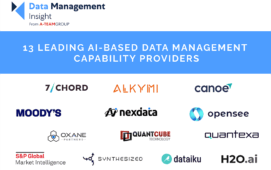Counterparty data utility Azdex, backed by its 51% owner Deutsche Boerse, has put itself forward as a potential not-for-profit facilitator to help financial institutions meet the requirements for handling entity identifiers ahead of the deadline for MiFID, the EU’s Markets in Financial Instruments Directive.
According to Azdex CEO Ken Price, the company is not seeking to circumvent industry initiatives on establishing standards for International Business Entity Identifiers (IBEI). Rather, he says, in the absence of such standards, Azdex is offering to step in to help institutions comply within the MiFID timeframe.
Certainly, the prospect of the looming MiFID regulation – slated for 2007 implementation – has pushed the issue of IBEI back up the priority list for many firms. Speaking at the recent Financial Information Management (FIMA) conference in London, industry consultant Simon Leighton-Porter said progress on developing a standard for IBEI has been slow.
He points out that MiFID is making entity identification a must-solve issue, and that there is very little time left to work toward compliance.
One of the reasons for the urgency is that MiFID will force market participants to identify originators of quote information, as exchanges, multilateral trading facilities and systematic internalizers all report their price information to the marketplace. While existing codes like the Business Identification Code (BIC) may be acceptable for regulated markets, they are not extensive enough for the post-MiFID environment.
Furthermore, “Even if a standard for IBEIs is put forward now,” said Leighton-Porter, “it won’t be ready for building databases in time for MiFID.”
Leighton-Porter is supportive of the Azdex/Deutsche Boerse proposal as an interim solution. He envisages participating vendors operating on a profit-free basis also, but with the option of providing other value-added services on a fee basis.
It has become widely acknowledged that while the IBEI initiative continues to make progress, it won’t be completed in time for financial institutions to adopt it in any meaningful way ahead of the MiFID deadline, which currently stands at April 2007 although it’s expected that regulators will be willing to push full implementation back to November of that year.
Azdex already operates an industry utility for, as it puts it, “benchmarking business entity data.” The company, a majority stake in which was acquired by Deutsche Boerse earlier this year and gave it the financial clout it needed to act as an industry utility for top-tier financial institutions, receives entity data from participating banks on an ‘as-is’ basis.
Azdex then cleanses the data, using its own analysts and updates from each of the participating banks. Participants in Azdex currently include Barclays Group, Citigroup, Dresdner Kleinwort Wasserstein, HBOS, Standard Bank and, of course, Deutsche Boerse. This process involves filtering double entries and false data, mapping the contributors’ data to the target format, normalizing the data and applying unique identifiers, and researching inconsistent data, enriching missing data where required.
At the same time, the process validates existing data for consistency. All data is then made available to all participants in their preferred format. None of the banks knows where the updated data has been sourced. Each, meanwhile, benefits from the shared data knowledge of the others.
Price believes the industry can benefit ahead of the MiFID requirements from a similar approach to sharing data. He says Azdex intends to offer the utility function on a not-for-profit basis. He urges institutions wishing to take advantage of this offer to contact Azdex to discuss next steps.
According to Leighton-Porter, the IBEI standard is still in draft stage. Development of the standard, under ISO Working Group 8, continues with a number of industry organizations, including the Reference Data User Group (RDUG), Committee on European Securities Regulators (CESR), the U.K. Treasury, the U.K. Financial Services Authority (FSA), the European Commission and the French Treasury.
Subscribe to our newsletter




